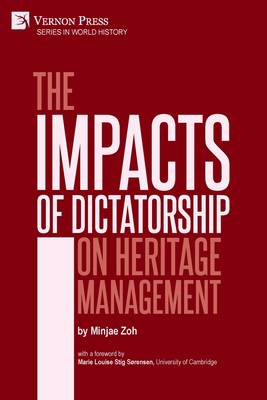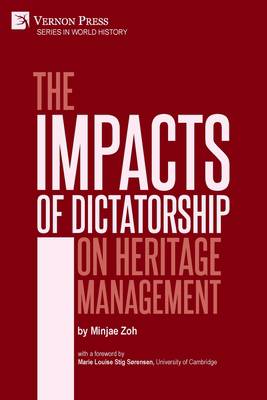
- Retrait gratuit dans votre magasin Club
- 7.000.000 titres dans notre catalogue
- Payer en toute sécurité
- Toujours un magasin près de chez vous
- Retrait gratuit dans votre magasin Club
- 7.000.0000 titres dans notre catalogue
- Payer en toute sécurité
- Toujours un magasin près de chez vous
Description
The relationship between heritage and dictatorship has, arguably, been relatively understudied compared to research on the nation-state. In recognising the importance of understanding how different political systems can have various and particular outcomes on heritage, The Impacts of Dictatorship on Heritage Management has developed the concept of 'Authorised Dictatorial Discourse' (ADD) to the ever-growing and evolving field of Heritage Studies.
Through the exploration of the various impacts a 'dictatorship' can have on the management and uses of heritage sites, this book sets out to examine how a dictator's interests in certain heritage sites, and particularly territories, can affect how heritage becomes preserved and promoted in both the mid and long terms. Building on Laurajane Smith's seminal works on Authorised Heritage Discourse (AHD) in her book Uses of Heritage (Routledge, 2006), this book also seeks to gain a more precise and in-depth understanding of the relationship between 'heritage and dictatorship', how authorised discourses on heritage has been exercised, and how territory policies that influenced the preservation and promotion of heritage sites have been executed. In doing so, The Impacts of Dictatorship on Heritage Management aims to provide a better insight into, demonstrate how, and the extent to which the politics of heritage and territory can be interlinked with this type of political system.
This book will appeal to those with a keen interest in heritage management, dictatorship and heritage, South Korean heritage and theoretical heritage management. It will be of particular interest to research students and scholars who are part of this interdisciplinary field.
Spécifications
Parties prenantes
- Auteur(s) :
- Editeur:
Contenu
- Nombre de pages :
- 248
- Langue:
- Anglais
- Collection :
Caractéristiques
- EAN:
- 9781648891663
- Date de parution :
- 16-12-20
- Format:
- Livre broché
- Format numérique:
- Trade paperback (VS)
- Dimensions :
- 152 mm x 229 mm
- Poids :
- 335 g

Les avis
Nous publions uniquement les avis qui respectent les conditions requises. Consultez nos conditions pour les avis.






